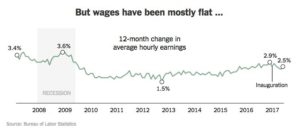American culture is experiencing an unprecedented backlash against Silicon Valley and the wired world that it has provided us. The tech giants are being slammed by criticism from all sides. On the Left, they are criticized for aiding the spread of anti-Hillary fake news and for fostering income inequality. On the Right, they are criticized for allegedly enforcing “political correctness” and preventing their workers from expressing non-liberal ideas. This has led even parties on the usually anti-regulatory conservative side of the American political spectrum, from relatively mainstream Fox News blowhards to racist alt-right extremists, to come out in favor regulating digital platforms like utilities.
It’s interesting to consider how we got here. For most of my adult life, the Internet has existed, changing the workplace, popular culture, and social life in profound ways. However, for most of that period there has been surprisingly little political commentary and social criticism about the Internet’s transformative effects. When television first emerged as a dominant medium, it received some scorn from cultural critics for being allegedly mindless and lowbrow. The rise of the Internet was an even more profound change than the rise of television – no one was doing financial transactions or finding love over their TV sets, after all – and yet its emergence did not seem to elicit the same amount of cultural angst.
There are some good reasons for this. Television was closed, centralized, and unilateral, with a few networks dominating its early years. The Internet was open, decentralized, and interactive. If someone accused the Internet of being a “vast wasteland” of lowbrow culture and poor-quality writing, you could respond by advising them to create and upload superior content. The Internet quickly became far too diverse and vast to be subject to any such generalizations. Any topics you might be interested in, and millions of others you had no interest in, were being discussed and documented somewhere online. Individual users’ experiences were totally self-customizable. Furthermore, they could participate in online discussions, which seemed to be a major improvement over television, which did not allow you to talk back to it (at least, it was far less responsive when you tried).
